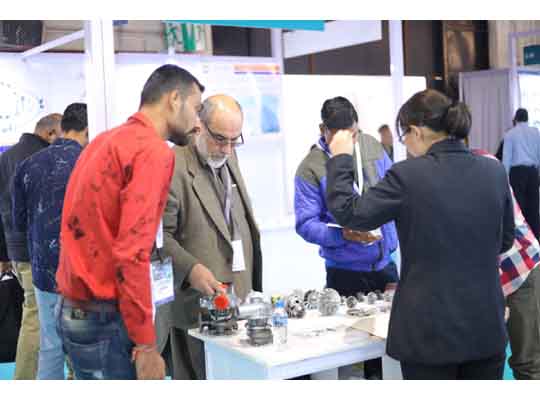Gearing up for the new edition of the trade fair in New Delhi, organisers of ACMA Automechanika – Messe Frankfurt India and The Automotive Component Manufacturers Association (ACMA) share their insights on the need for deep localisation of auto component manufacturing and the role of the recently announced union budget in promoting this objective.
The approach of automotive industry in 2020 was largely subdued as the issuance of trade restrictions brought a drastic slowdown in key sectors. Amid the doldrums of the pandemic, harnessing a digital business model and focus on financial health greatly enabled automobile companies to continually persevere and push forward.
Despite endless hurdles faced last year, some green shoots appeared toward the second quarter as demands briefly resurfaced during festive seasons. Domestic retail vehicle sales across categories grew for the first time since the onset of the pandemic, as a double-digit growth was achieved in the sale of passenger vehicles (PV) and two-wheelers, posing to be a good omen for the New Year.
While industry experts continue to be cautiously optimistic, recent projections from Indian Independent and Professional Investment Information and Credit Rating Agency (ICRA) show that the domestic auto component industry’s revenue may grow by 16-18 per cent in the subsequent financial year. There have also been speculations that demands may revert to the 2019 levels, in case auto sales and production retain normalcy this year. With potential development of the COVID vaccine, in consort with a rising preference towards personal mobility, consumer sentiment may too tip in favour of the industry.
Commenting on the industry and its leading exhibition in the automotive aftermarket, Mr Raj Manek, Executive Director & Board Member, Messe Frankfurt Asia Holdings Ltd., shares: “It is very vital to provide a push to local manufacturers to bolster the domestic supply chain and strengthen the automotive industry from its very core.”
With world’s leading electric car company setting up its base in India, it will be just a matter of time before the first fleet of electric cars arrive in India. “Thus, a more resolute approach towards e-mobility by OEMs will largely benefit in the long term.”, adds Manek.
As one of the leading automotive exhibitions of India, ACMA Automechanika (Slated to be held from 22 – 25 April 2021 at Pragati Maidan, New Delhi) has been the ultimate “pit-stop” to discover new technologies and engage with leading automotive aftermarket service providers and components manufacturers from the industry.
“Going forward, the focus of our automotive trade fairs will not just be aimed at creating a safe and healthy atmosphere for channel players to promote their businesses, but also enabling them to develop collectively as one integrated industry.”, concludes Mr Manek.
Mr Vinnie Mehta, Director General – Automotive Component Manufacturers Association (ACMA) also shares his views on the upcoming edition of ACMA Automechanika, “The excitement is mounting as the biennial ACMA Automechanika New Delhi, the flagship Aftermarket Expo, draws closer. To be organised jointly by ACMA and Messe Frankfurt, the event is being held at an opportune time as the automotive market gains momentum post the pandemic hiatus. The expo, probably, the first of its kind in the ‘real world’ since the lockdown, will be a ‘HYBRID’ one. Bridging the best of a physical and online exhibition, the one-stop sourcing platform will provide a preview of the latest aftermarket innovations and a sneak-peek into shapes of things to come.”
“With the automotive industry expected to recover fast and grow in double digits in most segments, the expo will be a booster shot to bring the industry back on track. It will also help consolidate India’s position as a major manufacturing hub for automotive components. Apart from a strong presence of domestic and international aftermarket product exhibitors, the popular business event will not only attract the domestic buyers but also the international OEMs and aftermarket distributors.” Mr Mehta elaborates.
The recently announced ‘Budget 2021’ puts a crucial focus on road building, voluntary scrappage policy, R&D and PLI among others, auguring well for the automotive sector.
Boons of Union Budget 2021-22 for local auto component manufacturers
The emphasis on “Atmanirbharta”, accompanied by an increase in custom duty on certain auto components will encourage local manufacturers to produce components within India. With an investment of INR 1.97 Trillion towards the production linked incentive scheme (PLI), the government will provide a strong impetus to localised manufacturing over next the 5 years, and the doubled budget outlay for the MSME segment will deliver stronger support to the auto component segment which is primarily dominated by MSMEs.
The ‘voluntary scrapping policy’ announced by the government to boost the production of energy-efficient vehicles in India will not only lead to a reduction in vehicular pollution, but also generate new demands for the commercial and passenger vehicle segment, thus creating opportunities for OEMs and tyre manufacturers.
With the auto industry on the path of recovery, government’s goal of achieving ‘Atmanirbharta’ will certainly be a vision to look up to, as deep localization would not only make the automotive industry globally competitive, but also more resilient in face of any future crisis.















